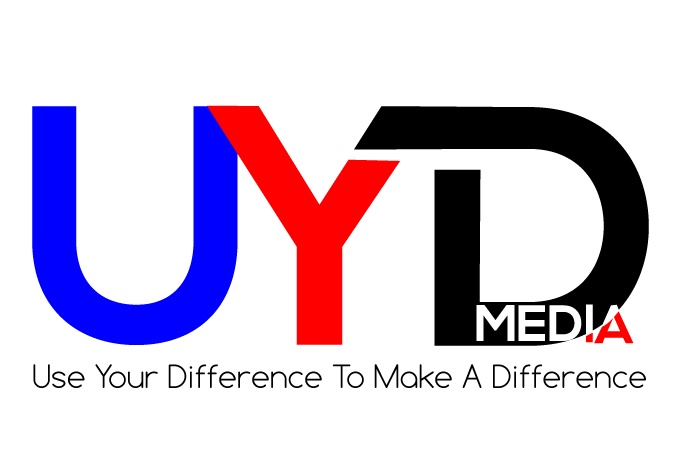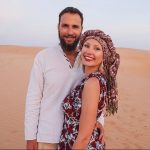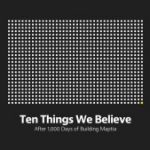Like many other TCKs, identity and the concept of home are two things I constantly struggle with. At first, I thought that it was just a product of how I grew up or the inherent diversity I experienced that was both apparent and latent during my upbringing. However, as I get older, this struggle seems to be magnifying. And as I continue to careen through the world of adulthood, the feeling of being adrift is only becoming a harsher reality – amplified by increasing uncertainty, unending questioning and self-doubt. I often feel as though a piece of the puzzle to liberate myself from my identity and transcending the baggage of the awkward and frustrating introspection of my own self has yet to be found.
Now that I’m in the troughs of my self-labeled mid-20s existential life crisis, I’m beginning to make certain connections to understand the feelings I have. Part of this is due to a fundamental insistence to ask the right questions. For instance, why is identity so important to me? I understand now that a partial answer to this question stems from my underlying assumption that with clearer identity comes social bonds, which further lead to two of the most elusive concepts for TCKs: belonging and community. Indeed, I don’t feel like I belong in any particular place nor am I part of any particular community. This is problematic, in part, because social support is inherently needed to get through life – to overcome the bad and celebrate the good. Moreover, as a self-professed global nomad, I also have to ask myself what it is that I’m searching for, and the answer always tends to be “home.” But when I conceptualize what home is, it often cycles back to a profound longing for belonging and community.
My story versus my roots
I recently read a blog post shared on Twitter by a fellow TCK that strongly resonated with me. Cecilia, who writes on her blog, The Cherished Nomad, said, “If the question “where are you from” is followed by a big inhale and any of the phrases “Well, my parents are…”; “I grew up in X, but…”; “I really don’t know,” you’ve definitely got a TCK on your hands and while it may sound like an amazing childhood (it is), being a TCK can often make you feel rootless. I have a Swedish passport, but I’ve grown up in England. My parents live in Hong Kong and my brother is studying in the U.S. Home, mostly, is wherever I am for now.”
Cecilia’s words describe the past 15+ years of my life. To give some context, I was born in Kentucky to immigrant parents. I’m Syrian and Lebanese, but my parents were born in Egypt, and I’m also part Iraqi and Armenian. My TCK story is a bit different because I never went to international schools or grew up in different countries like many TCKs have. But ever since 2009, I have lived in three countries (Lebanon, India, and now, Turkey). Aside from ethnicity, I also grew up in clashing cultures. For instance, I was raised Catholic in a heavily Protestant region (the notorious “Bible Belt”). Additionally, I didn’t grow up in a diverse city. I grew up in the rural American south. So, my TCK experience bridges many different cultures, not just ethnic ones. However, experiencing my teens in a post-9/11 American society definitely made me challenge as well as want to discover my ethnic roots in particular – which is what ignited my first international adventure and the subsequent journey I am currently traversing.
In terms of identity (either self-assigned or appropriated), I am undoubtedly American: my accent, my love for flip-flops and (crunchy) peanut butter, values I hold dear like personal freedom and liberalism. Yet, I also don’t feel very American at all. I can adapt when I’m with “my fellow Americans,” but at the same time, I stick out; something’s different. And it’s not just that my friends didn’t grow up eating mulukhiyah and warak enab. It’s not that they didn’t have to constantly try and figure out if their parents were arguing about them in not just one, but three different languages. Was it just my “Arabness?” Was it something else? When I lived in Lebanon, I didn’t feel very Lebanese; in fact, I was well aware I wasn’t. So, how do I bridge this apparent gap within my own identity and how I can relate to others, especially those who are supposed to be “like me” (e.g., Americans) – even when I feel like the people who are most like me are other TCKs and especially “hyphenated individuals?”
Something is missing…
I still long for belonging, and a tangible, immediate sense of community. Maybe I’m not asking the right question, though, or at the very least, looking in the right place. Yet, perhaps this piece of the puzzle was in front of me the whole time.
Going back to my roots
I was recently describing my ethnic background to my flatmate’s mother who was visiting us in Istanbul (of course, to the usual fanfare of “here we go again…” by her son). As we were talking about my family’s history and I asked her what it was like to have family members who fought in the First and Second World Wars, something dawned on me. I don’t have any family that died in the great wars of the 20th century (at least that I know of). In fact, what did I really know about my family’s history, except for a small collection of anecdotes and a vague understanding of all the places we originate from? Indeed, I then realized that I was gaining a new piece of the identity puzzle, a clue as to how to go forward and frame my present reality. And it did not lie in the present, but the past.
As if my story wasn’t already complicated enough, before my parents were born in Egypt, one of my grandmothers was born in Sudan. And before then, my family had migrated to North Africa from Syria and Iraq. At the time, the Middle East was largely the Ottoman Empire, and moving from one place to another was easy – as it was before the imposition of the nation-state on the region. My great-great-grandfather had even migrated to Syria from what is now eastern Turkey. Is it no wonder then that before immigrating to opposite corners of the US (New York and Los Angeles), my mom and dad, before they even knew each other, had both migrated to Lebanon with their families (where my dad lived only one year but my mom lived for 12)? Was it that hard to believe that my family would end up in such a random place as Kentucky? Between the nomadic culture of my Arab ancestors in the distant past to the migratory habits of my city-dwelling descendants more recently, migration has always been a part of our lives. And although I didn’t take up the family torch of medicine (as so many had before me, including my father who was disappointed but ultimately supportive of this decision), I took up another defining aspect of our family that no one had expected: migration.
When considering my family’s history, it is less surprising that I have become nomadic myself. Historically, home was never really one place; it was always a fluid concept. It wasn’t always based on a neighborhood or city, or even a region, bound by walls, invisible lines or the edge of a village. Perhaps it was based on bloodlines and family, or shared culture, language and especially, religion. Either way, it alludes to the fact that throughout my family’s history, home was more of a shared experience with the people that were connected to them. My parents raised me American, but who knows what I will raise my kids as. After all, our roots are rootless – they are not bound to one place. Perhaps what I have needed all along was a new standard to evaluate my identity. As it stands, the criteria are incredibly narrow and based on too few factors. The historical context that influenced why everything has turned out the way it has in my life, even down to the fact that I migrate now in part is due to the same reason my parents and predecessors migrated so much as well: because everyone’s got bills to pay.
So now, as I continue on my nomadic journey around the world, who knows what I will find, who I will meet or what I will discover. But I should always bear in mind that this journey isn’t as random as I thought; it is historically rooted in an existence that has only ever had a homeland at best. And while community and belonging may always be two things that I’m constantly longing and searching for, I must also remember that home has never been a place and perhaps never will be. Coming to terms with that may be hard and I won’t deny that I’d stop searching for it. But instead of linking home to geography or a city, I will try to take more comfort in the beautiful relationships I have created over time, and see where this journey takes me.
After all, “not all those who wander are lost.”




